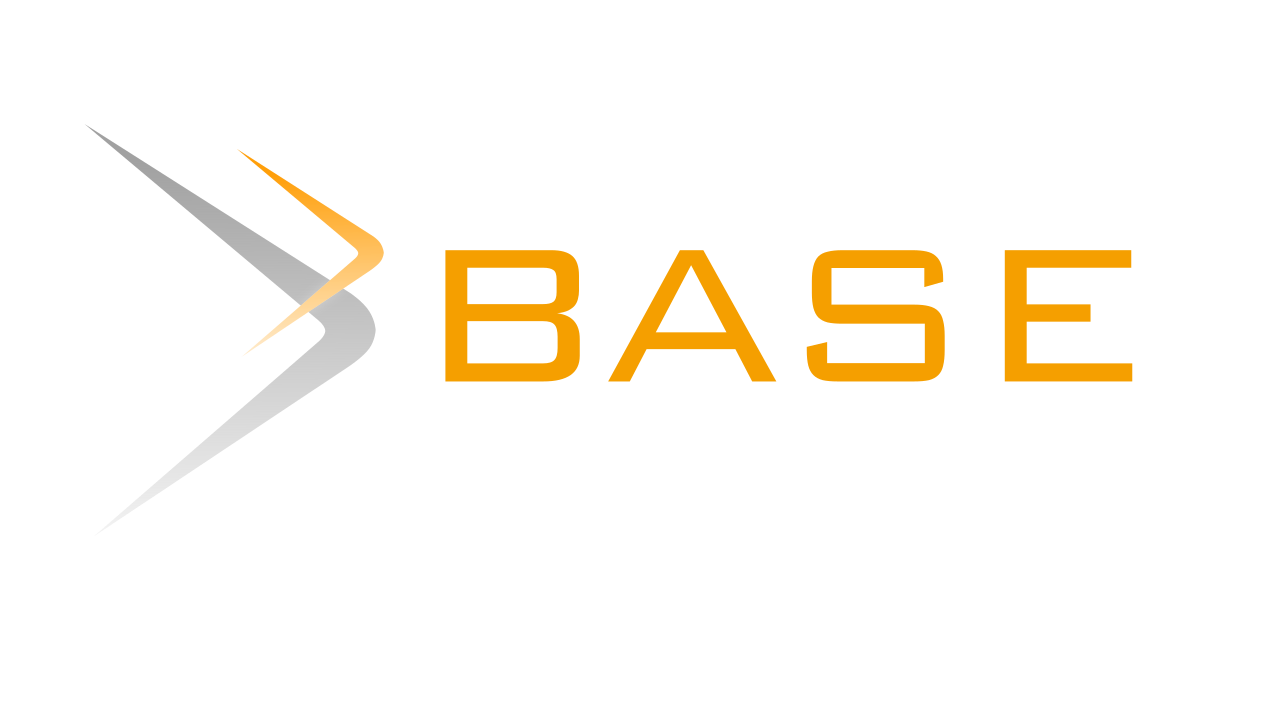Institutional Ownership, Audit Quality, Gender Diversity and Political Connection to Tax Aggressiveness in Indonesia
DOI:
https://doi.org/10.32486/aksi.v6i2.91Keywords:
Tax Aggressiveness, Institutional Ownership, Audit Quality, Gender Diversity, Political ConnectionAbstract
This study aims to empirically prove the influence of Institutional Ownership, Audit Quality, Gender Diversity, and Political Connection to Tax Aggressiveness. This study used a sample of companies listed on the LQ 45 Indonesia Stock Exchange during the period 2013 – 2019. The sample usage in this study was 13 LQ 45 companies with purposive sampling og 91 sampels during 2-13 – 2019 listed on the Indonesia Stock Exchange. The research method used in this study was the panel data regression model. The results showed that the quality of audits had a positive effect and political connections negatively influenced tax aggressiveness while institutional ownership an gender diversity had no effect on tax aggressiveness.
References
Abdul Wahad, E., Ariff, A., Zuraidah, Marzuki, M., & Sanusi, M. (2017). Political connections, corporate governance, and tax aggressiveness in Malaysia. Asian Review of Accounting.
Alkausar, B., Lasmana, M., & Soemarsono, P. (2020). Agresivitas Pajak: Sebuah Meta Analisis dalam Perspektif Agency Theory. The International of Applied Bussiness, 53-62.
Ambarsari, D., Pratomo, D., & Kurnia. (2019). Pengaruh Ukuran Dewan Komisaris, Gender Diversity Pada Dewan, Dan Kualitas Auditor Eksternal Terhadap Agresivitas Pajak (Studi pada Perusahaan Sektor Property dan Real Estate yang Terdaftar di Bursa Efek Indonesia tahun 2013-2017). Jurnal Ilmiah Akuntansi, 142-157.
Arismajayanti, N., & Jati, I. (2017). Influence of Audit Committee Competence, Audit Committee Independence, Indepencence Commissioner, and Leverege on Tax Aggressiveness. Journal of Auditing, Finance, and Forensic Accounting, 109-119.
Author OECD. (2020). Tax administration: Privacy, Disclosure and Fraud Risks Related to Covid - 19. Paris: OECD.
Banius, A., & Rachman, J. (2018). Sustainable Development Goals. Intermestic: Journal of International Studies, 3(1), 1-8.
Basuki , T., & Prawoto, N. (2016). Analisis regresi dalam penelitian Ekonomi dan Bisnis. Jakarta: PT RajaGrafindo Persada.
Basuki, T., & Prawoto, N. (2017). Analisis Regresi Dalam Penelitian Ekonomi & Bisnis : Dilengkapi Aplikasi SPSS & EVIEWS. Depok: Rajagrafindo Persada.
Boussaidi, A., & Sidhom, M. (2020). Board's characteristics, ownership's nature and corporate tax aggressiveness: new evidence from the Tunisian context. EuroMed Journal of Business.
Boussidi, A., & Hammed, M. (2015). The Impact Of Governance Mechanisms On Tax Aggressiveness: Empirical Evidence From Tuinsian Context. Journal Of Asian Bussines Strategy, 1-12.
Bresciani, S., Giudice, M., & Papa, A. (2017). Public control and strategic governance in state-owned public utilities: empirical evidence from Italian listed firms. Italian Journal of Management, 35, 47-63.
Chong, K., & Arunachalam, M. (2018). Determinants of enforced tax compliance: empirical evidence. Advances in Taxation, 25, 147-172.
Conelly, J., Limpaphayom, P., & Nagarajan, J. (2012). Form versus substance: The effect of ownership structure and corporate governance on firm value in Thailand. Journal of Banking & Finance(36).
Cortellese, F. (2020). Gender board composition and tax aggressiveness in public listed companies. Copenhagen Business School Law(3).
Damayanti, F., & Susanti, T. (2015). Pengaruh Komite Audit, Kualitas Audit, Kepemilikan Institusional, Risiko Perusahaan dan Return On Assets Terhadap Tax Avoidance. ESENSI Jurnal Bisnis dan Manajemen, 5(2), 187–206.
Darussalam. (2020, Febuari 10). DDTC. Retrieved Oktober 24, 2020, from DDTC News: https://news.ddtc.co.id/realistiskah-target-pajak-2020-18856
Deslandes, M., Fortin, A., & Landry, S. (2020). Audit committee characteristics and tax aggressiveness. Managerial Auditing Journal, 272-293.
Dewi, S., & Cynthia. (2018). Aggressiveness Tax In Indonesia. Jurnal Akuntansi, 22, 39-254.
Dyreng, S., Hanlon, M., & Edward, L. (2008). Long Run Corporate Tax Avoidance. The Accounting Review(83), 61-82.
Fama, E., & Jensen, M. (1983). Separation of ownership and control. The Journal of Law and Economics, 26(2), 301-325.
Frank, M. M., Lynch, L. J., & Rego, S. O. (2009). Tax Repoting Aggressivenss and its relation to aggressive financial repoting. Accounting Review, 2(84), 467-496.
Ghozali, I. (2016). Aplikasi Analisis Multivariete Dengan Progam IBM SPSS 23( Edisi 8). Cetakan ke VIII. Semarang: Badan Penerbit Universitas Diponegoro.
Ghozali, I., & Ratmono, D. (2013). Analisis Multivariat dan Ekonometrika : Teori, Konsep, dan Aplikasi dengan Eviews 8. Semarang: Badan Penerbit Universitas Diponegoro.
Gujarati, D. N., & D C, P. (2009). Basic Econometrics. New Work: Salemba Empat.
Hanlon, M., & Heitzman. (2010). A Review of Tax Research. Journal of Accounting and Economics, 50, 127-178.
Harymawan, I., & Ayuningtyas, E. (2020). Koneksi Politik dalam Bisnis: Variabel dan Pengukuran. Surabaya: Airlangga University Press.
Ho, S. S., Li, A. Y., Tam, K., & Zhang, F. (2015). CEO Gender, Ethical Leadership, and Accounting Conservatism. Journal Bussines Ethics, 127(2), 351–370.
Irianto, D., & S.Ak, A. (2017). The Influance of Profitability, Leverege, Firm Size and Capital Intensity Towards Tax Avoidance. International Journal of Accounting and Taxtion, 2(5), 33-41.
Iswari, P., Sudaryono, E., & Widarjo, W. (2019). Political connection and tax aggressiveness: A study on the state-owned enterprises registered in Indonesia stock exchange. Journal of International Studies, 79 - 92.
James, S., & Alley, C. (2002). Tax compliance, self assessment system and tax administration. Journal of Finance and Management in Public Services, 2(2), 27-42.
Jensen, M., & Meckling, W. (1976). Theory of The Frim: Managerial Behavior, Agency Costs and Ownership Structure. Journal of Financial Economics, 305-360.
Johnson, S., Potra, R., Lopez-de-Silanes, F., & Shleifer, A. (2000). Tunneling. American Economic Review, 22-27.
Jusuf, A. (2017). Jasa Audit Assurance 2. Jakarta: Salemba 4.
Kastlunger B, Dressler S, Kirchler E, Mittone L, & Voracek M. (2010). Sex differences in tax compliance: Differetiating between demographic sex, gender-role orientation, and prenatal masculinization (2D:4D). Journal of Economic Psychology(31), 542-552.
Kenton, W. (2020, January 29). Corporate Finance & Accounting. Retrieved Oktober 20, 2020, from Investopedia: https://www.investopedia.com
Khan, M., Srinivasan, S., & Tan, L. (2016). Institutional Ownership and Corporate Tax Avoidance: New Evidence. The Accounting Review, 92(2), pp.101–122.
Kim, C., & Zhang, L. (2016). Corporate Political Connections and Tax Aggressiveness. Contemporary Accounting Research, 33(1), 78–114.
Kuncoro Ph D, M. (2007). Metode Kuantitatif, Teori, dan Aplikasi untuk Bisnis dan Ekonomi. Yogyakarta: UPP STIM YKPN.
Laporan Keuangan Pemerintah Pusat. (2019). Kementrian Keuangan Indonesia.
Lestari, P., Pratomo, D., & Asalam, A. (2019). Pengaruh Koneksi Politik dan Capital Intensity Terhadap Agresivitas Pajak. Akuntansi Riset, 41-54.
Lietz, G. (2013). Tax Avoidance vs. Tax Aggressiveness: A Unifying Conceptual Framework. SSRN Electronic Journal.
Luo, J., Peng, C., & Xin, Z. (2020). The impact of CFO gender on corporate fraud: Evidence from China. Pacific-Basin Finance Journal, 63, 1-12.
Martinez, A., & Hartman, C. (2020). Tax Aggressiveness and Big4 Audit Frims. SSRN, 1-24.
Martinez, A., & Motta, F. (2020). Tax aggressiveness of government-controlled corporations in Brazil. Revista Contemporânea de Contabilidade, 7(43).
muc consulting. (2020, june 05). Retrieved oktober 20, 2020, from mucglobal: www.mucglobal.com
OEDC. (2020, July 23). tax-policy. Retrieved Oktober 20, 2020, from OECD: www.oecd.org
Onyali, Innocent, C., Okafor, & Gloria, T. (2018). Effect of Corporate Governance Mechainsms on Tax Aggressiveness of Quoted Manufacturing Frims on the Nigerian Stock Exchange. Asian Journal Of Economics, 1-20.
Pranoto, B., & Widagdo, A. (2016). Pengaruh Koneksi Politik dan Corporate GOvernance terhadap Tax Aggressivenss. Surakarta: Universitas Sebelas Maret.
Pratiwi, D., & Ardiyanto, M. (2018). Pengaruh Struktur Kepemilikan Trehadap Agresivitas Pajak. Diponegoro Journal Of Accounting.
Priyatno, D. (2014). SPSS 22: Pengolahan Data Terpraktis.
Purwanti, S., Meliana, & Sugiyarti, L. (2017). Pengaruh Intensitas Aset Tetap, Pertumbuhan Penjualan dan Koneski politik terhadap Tax Avoidance. Jurnal Riset Akuntansi dan Keuangan, 3(5), 117-134.
Putri, R., Ulum, I., & Prasetyo, A. (2019). Company Risk, Size, Fiscal Loss Compensation, and Tax Avoidance: Evidence From Indonesian Islamic Companies. Journal of Innovation in Bussines and Economics and Bussines, 02(2), 87.
Sugeng, Prasetyo, E., & Zaman, B. (2020). Does capital intensity, inventory intensity, firm size, firm risk, and political connections affect tax aggressiveness? Jurnal Ilmiah Bidang Akuntansi dan Manajemen, 7(1), 78-87.
Sugiyono. (2018). Metode Penelitian Kuantitatif. Bandung: Alfabeta.
Susanto, Y. K., Pirzada , K., & Adrianne, S. (2019). Is Tax Aggressiveness an Indicator of Earnings ManagementT? Polish Journal of Management Studies, 517-527.
Suyadnya, I., & Supadmi, N. (2017). Pengaruh Ukuran KAP, Audit Fee, dan Audit Tenure Pada Agresivitas pajak. E-Jurnal Akuntansi Universitas Udayana, 1131-1159.
Vacca, A., Iazzi, A., Vrontis, D., & Fait, M. (2020). The Role og Gander Diversity on Tax Aggressiveness and Corporate Social Responsibility: Evidence from Italian Companies. sustainability, 12.
Wulandary, L. (2018). Pengaruh Politicak Connection Pada Dewan Komisaris dan Dewan Direksi Terhadap Kinerja Perusahaan Sektor Pertambangan yang Terdaftar di Bursa Efek Indonesia (BEI) Periode Tahun 2010-2014. Jurnal Ilmiah Mahasiswa Universitas Surabaya, 7, 1.
Ying, T., Wright, B., & Huang, W. (2017). Ownership Structure and Tax Aggressiveness of Chinese Listed Companies. International Journal of Accounting & Information Management.
Yulia, A., Hayati, N., & Daud, R. (2019). The Influence of Tax, Foreign Ownership and Company Size on. International Journal of Economics and Financial, 9(3), 175-181.
Zaitul, & Ilona, D. (2019). Tax Aggressiveness and Politically Connected Company. KnE Social Sciences, 10-19.
Downloads
Published
How to Cite
Issue
Section
License
Copyright (c) 2021 Fachrul Ananto Firdaus

This work is licensed under a Creative Commons Attribution-ShareAlike 4.0 International License.













